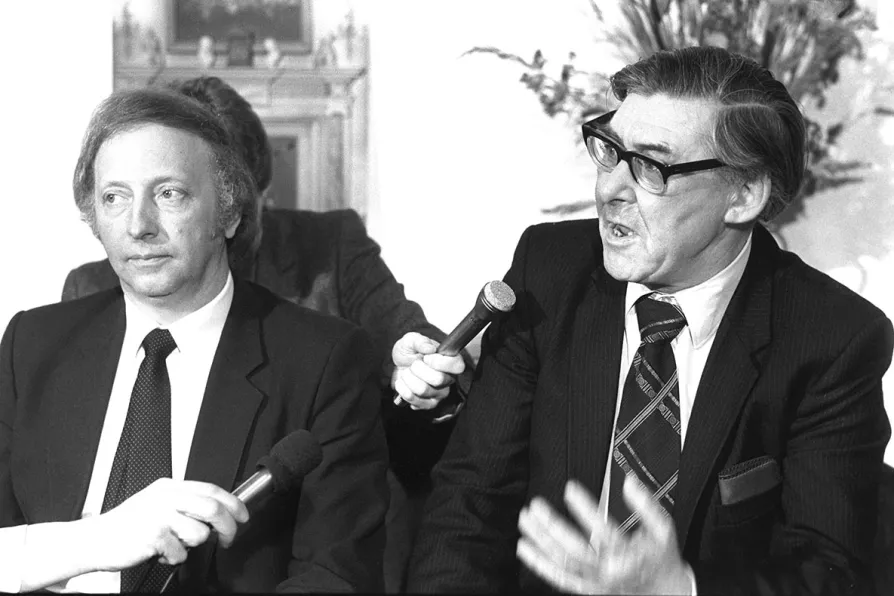This weekend, the NEU holds a special conference to debate changing its approach to organising teaching assistants, which a 2017 TUC agreement forbids. General secretary DANIEL KEBEDE outlines the choices before delegates

 NUM President Arthur Scargill (left) and NUM Scottish President Mick McGahey in London, where they met with coal board chairman Ian MacGregor at the NCB's headquarters, March 6, 1984
NUM President Arthur Scargill (left) and NUM Scottish President Mick McGahey in London, where they met with coal board chairman Ian MacGregor at the NCB's headquarters, March 6, 1984
TODAY is the 25th anniversary of the death of Mick McGahey. The occasion will be marked by a debate in the Scottish Parliament on his legacy.
This is fitting. In his very first year as the leader of the Scottish miners, he went to the Scottish TUC Congress and called for the establishment of a Scottish Parliament in a federal United Kingdom.
In so doing he invoked the spirit of Bob Smillie and Keir Hardie, argued that the essence of socialism was the decentralisation of power, but decisively rejected “any theory of a classless Scotland,” citing the common bonds between the Scottish miners, the London dockers, the Durham miners and the Sheffield engineers.

Corbyn and Sultana’s ‘Your Party’ represents the first attempt at mass socialist organisation since the CPGB’s formation in 1921, argues DYLAN MURPHY

KATE CLARK recalls an occasion when the president of the Scottish National Union of Mineworkers might just have saved a Chilean prisoner’s life

Mark Harvey pays tribute to a veteran of the days when the London building trade was a hotbed of working-class struggle, a legendary trade unionist, communist and poet











